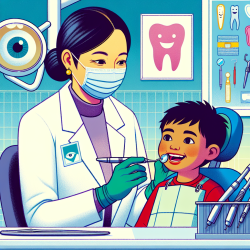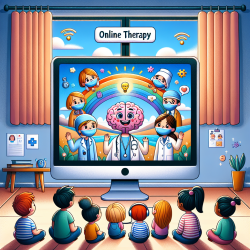Introduction
As practitioners working with children and adolescents, understanding the intricate relationships between ADHD, executive functioning (EF), and depression is crucial. The recent study, "Childhood ADHD and Executive Functioning: Unique Predictions of Early Adolescent Depression," sheds light on these connections, offering insights that can enhance our practice and improve outcomes for young individuals.
The Study at a Glance
This research explores how childhood ADHD, particularly inattention, predicts early adolescent depression. It also examines whether EF deficits contribute to depression independently of ADHD symptoms. The study followed 216 children, aged 6-9, over several years, assessing ADHD symptoms, EF, academic, and social functioning, and later depression.
Key Findings
- Inattention as a Predictor: The study found that inattention, rather than hyperactivity-impulsivity, significantly predicts early adolescent depression. This highlights the importance of addressing inattention early to mitigate future depressive symptoms.
- Executive Functioning: Contrary to expectations, EF did not independently predict depression when controlling for ADHD symptoms. This suggests that interventions should prioritize inattention over EF deficits in preventing depression.
- Academic and Social Functioning: The study did not find these as mediators between ADHD/EF and depression, indicating that other factors may play a more significant role in this relationship.
Implications for Practice
For practitioners, these findings emphasize the need for early screening and intervention for inattention in children. By focusing on this aspect of ADHD, we can potentially reduce the risk of depression as these children transition into adolescence. Here are some strategies to consider:
- Early Identification: Implement screening tools in schools and clinics to identify children with significant inattention symptoms.
- Targeted Interventions: Develop and apply interventions that specifically address inattention, such as behavioral therapies and cognitive training programs.
- Collaborative Care: Work with educators, parents, and healthcare providers to create a comprehensive support system for children with ADHD.
Encouraging Further Research
This study opens the door for further research into the mechanisms linking ADHD and depression. Future studies could explore the role of cognitive factors like self-esteem and attributional style in mediating this relationship. Additionally, investigating the impact of social skills interventions on depression in ADHD populations could provide valuable insights.
Conclusion
Understanding the nuances of ADHD and its impact on adolescent mental health is vital for practitioners. By focusing on inattention and its potential to predict depression, we can better tailor our interventions to support the mental well-being of young individuals. For those interested in delving deeper into this research, I encourage you to read the full study: Childhood ADHD and Executive Functioning: Unique Predictions of Early Adolescent Depression.










